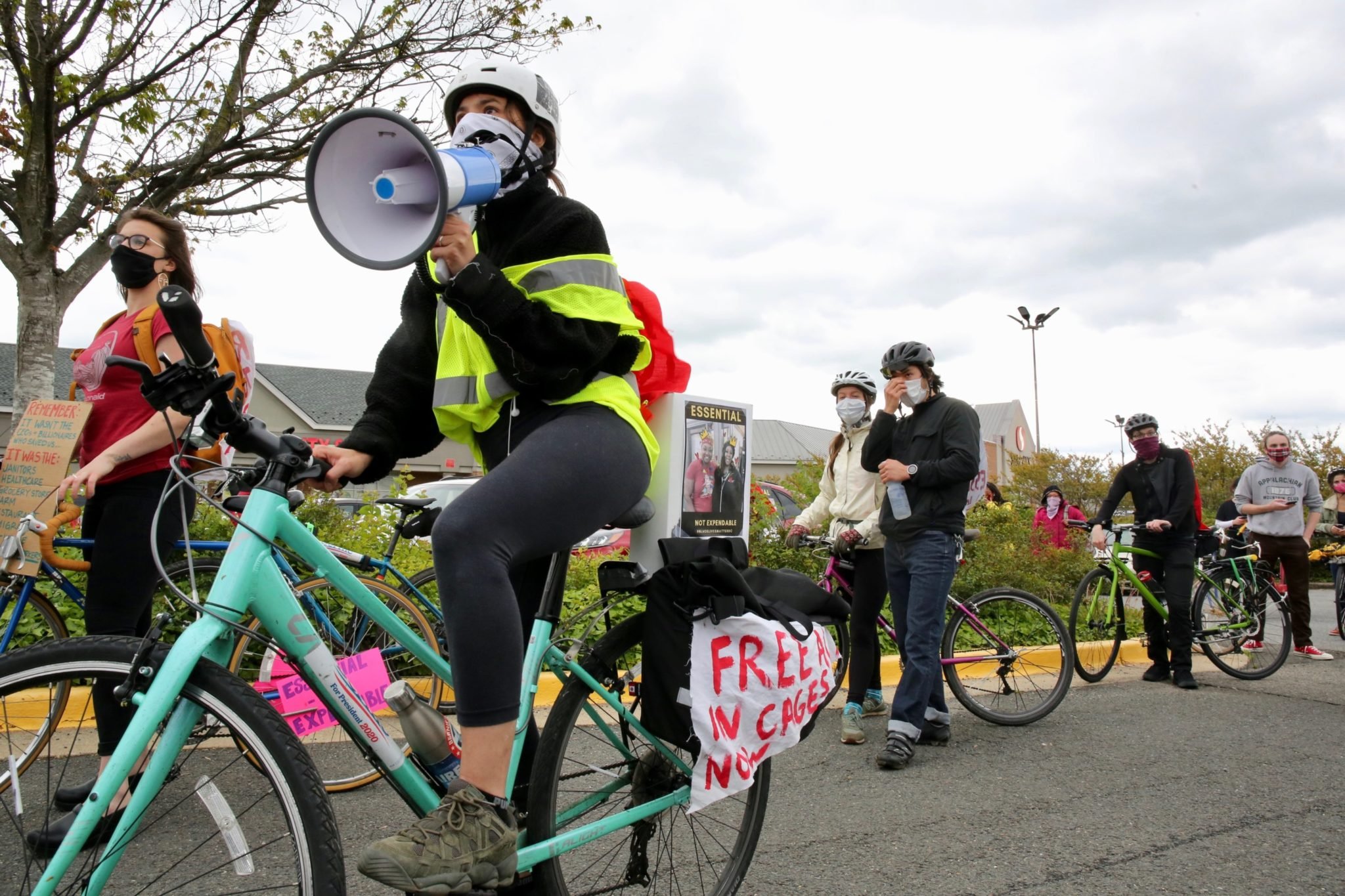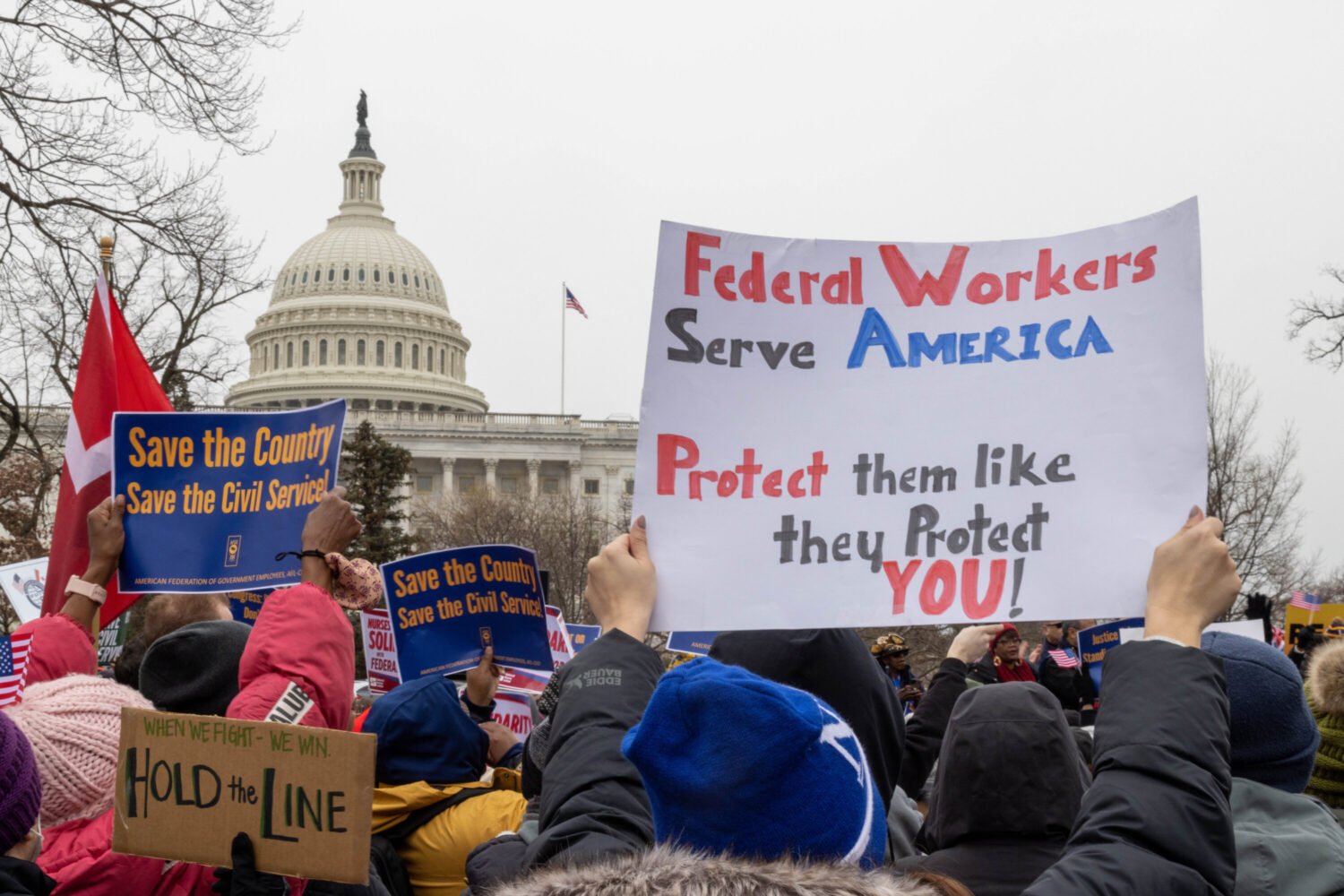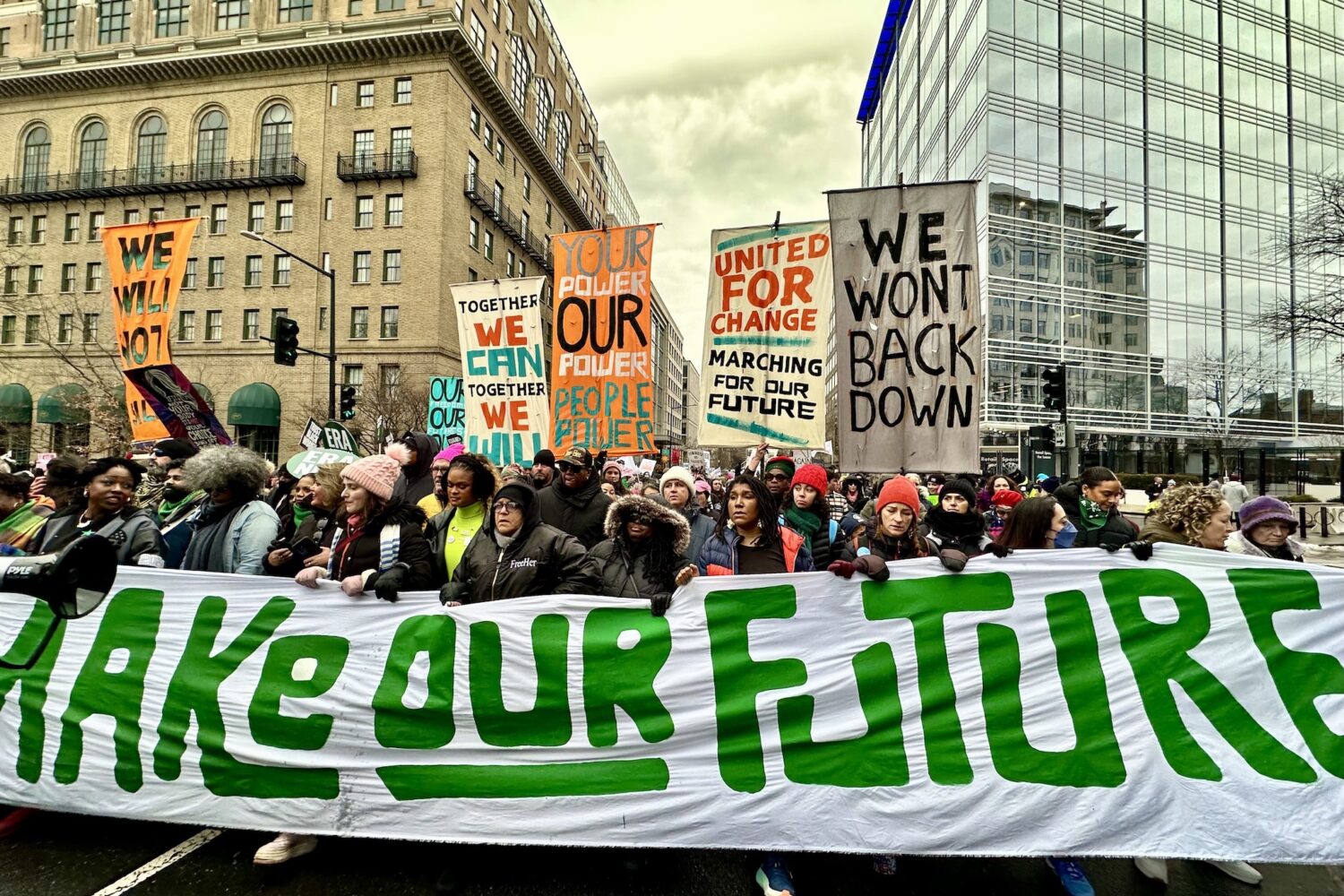About Coronavirus 2020
Washingtonian is keeping you up to date on the coronavirus around DC.
The cyclists who were gathered at Columbus Circle in front of Union Station began to feel like a more organized unit when Chris pulled up on his bike with a gargantuan speaker system in tow, blasting 2Pac’s “Keep Ya Head Up.” “It weighs about 160 pounds,” he said of his rig. “But it has its own trailer so that helps.”
All of the roughly 20 people on bikes present were wearing proper facial coverings as they prepped for their ride and dropped it to the music. But were they social-distancing? Not so much. While they kept a six-foot space between one another at most times, there was no way to do so when a protest leader pinned red-and-white art onto their backs and backpacks.
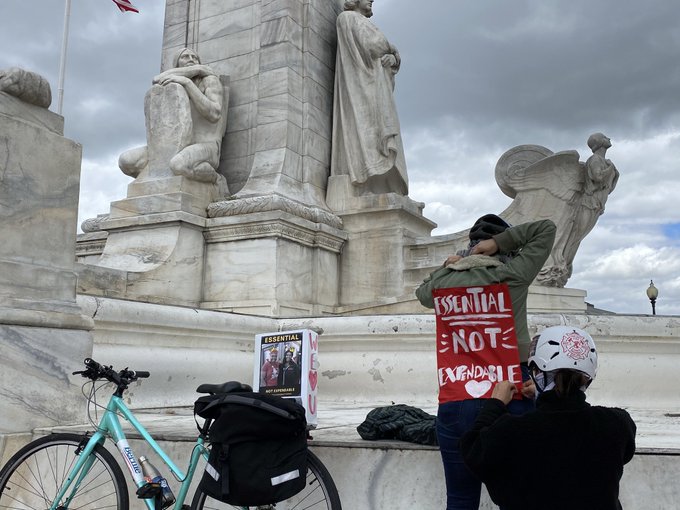
A police officer looked on, making no effort to break up the group and chatting with its police liaison about their plans. The ride would be tailed by two police cars and two police motorcycles to help block off the streets as it made its way through the city. “We just want to make sure you guys are safe,” the officer said.
Monday’s protest was the first of a week of actions coordinated by ShutDownDC — which shut down DC traffic in September — to highlight inequality exacerbated by the coronavirus pandemic. In partnership with Black Lives Matter DC, the bike group and two car caravans planned to demonstrate their support for essential workers and spread awareness about how the virus has disproportionately affected African American DC residents, many of whom are essential workers.
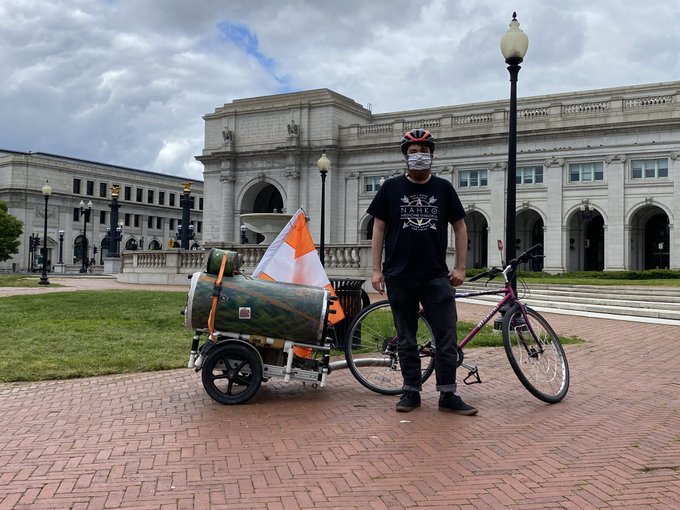
“There are a lot of people who work here, around Capitol Hill, who consider themselves the most essential people to this country,” Chris, who declined to give his last name, said. “But they’re not the real essential workers. The real essential workers are the ones who are getting hurt by the lawmakers of this country.”
Around 2:30, the group started making its way up North Capitol Street to stop in front of the DC Housing Authority offices. As the group sang a verse of a protest song and reflected on the housing and economic inequalities in the District, residents of an adjacent high-rise ventured onto their balconies to investigate the commotion. Two women sitting in a nearby bus stop asked what the protest was for. When I explained, they began grumbling about the lack of social distancing from the group “trying to reopen the economy.”
We’re off and heading up North Capitol. Videoing while biking is hard #ShutDownDC pic.twitter.com/jimOWfH7jz
— Jane Recker (@janerecker) April 27, 2020
The caravan then made its way over to the H Street, Northeast, Whole Foods, chanting, “End rent today, make the rich pay.” As it made its way through the NoMa underpass trumpeting Bob Marley’s “One Love,” it was possible to just distinguish what appeared to be confused faces peeking out from tents under the bridge.
The cyclists began scrawling messages of love and support in chalk on the sidewalk outside the Whole Foods, with phrases like “You Are Essential,” “We Love You,” and “Essential Workers Deserve More Than Thoughts And Prayers” in bright pastels. One person chalking an insult ended up with “Fuck Bezoz”; a quick copyedit with a darker color got the message back on track.
Essential workers waved and thanked the protestors riding through Capitol Hill and over the river #ShutDownDC pic.twitter.com/UgrOWKq41S
— Jane Recker (@janerecker) April 27, 2020
Satisfied with their creations, the group began the four-mile haul to the Hillcrest Safeway parking lot. Riding through Capitol Hill and over the Anacostia, a rider shouted, “Thank you, essential workers! We love you! We support you!” Road workers and contractors waved, smiling, a letter carrier jumped up and down and cheered, and a woman in scrubs crossing the 11th Street bridge yelled, “Thank you! Thank you so much for supporting us!” Across the river in Anacostia, people on the streets cheered and filmed the riders, and motorists honked and waved.
At Good Hope Road, the group had just one mile left to go—a steep uphill mile. Puffing and panting, the riders slowly charged up the incline. Chris’s theory that the trailer reduced the weight of his speakers was sorely tested. But straining and pushing against his cargo, he too made it to the Safeway parking lot, joining the roughly hundred people from the other caravans as a band played go-go.
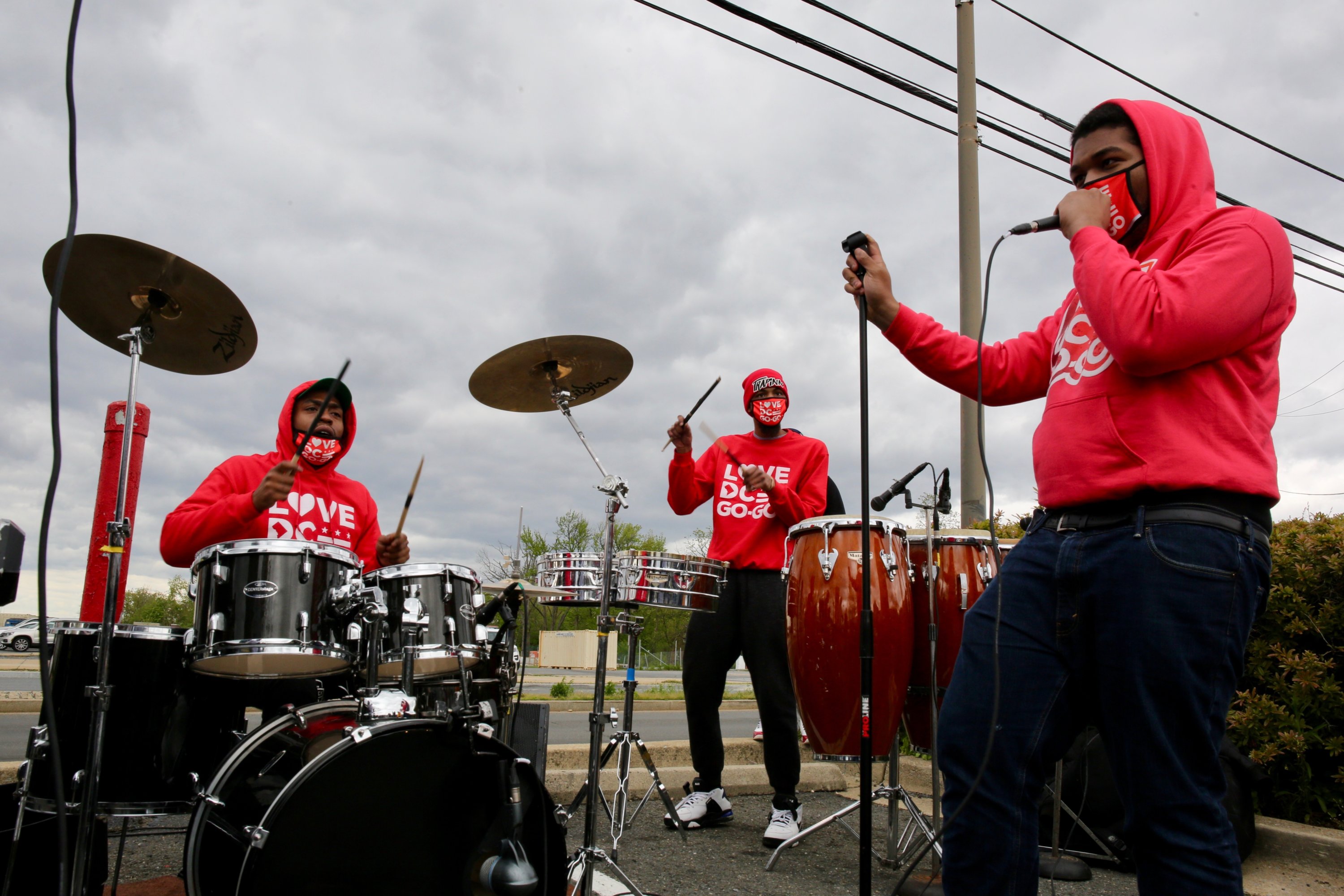
While there was initially some level of social distancing, the crowd began to crush in when a protest leader announced police planned to shut down the rally. “Maintain your social distance!” she yelled, five police cars and a paddy wagon behind her. The crowd failed to move quickly enough. One of the officers stepped toward the woman, removing his mask when he instructed her to disperse. Bad move. As the band packed up and participants began to leave, the speaker admonished the officer for putting her in danger by removing his mask. “We’re dying out here,” she said, as someone with a bullhorn yelled, “Where is your PPE, MPD?”
The officer replaced his mask. “Oh, you put it on?” the speaker asked. “Too late. I already tweeted it.”

